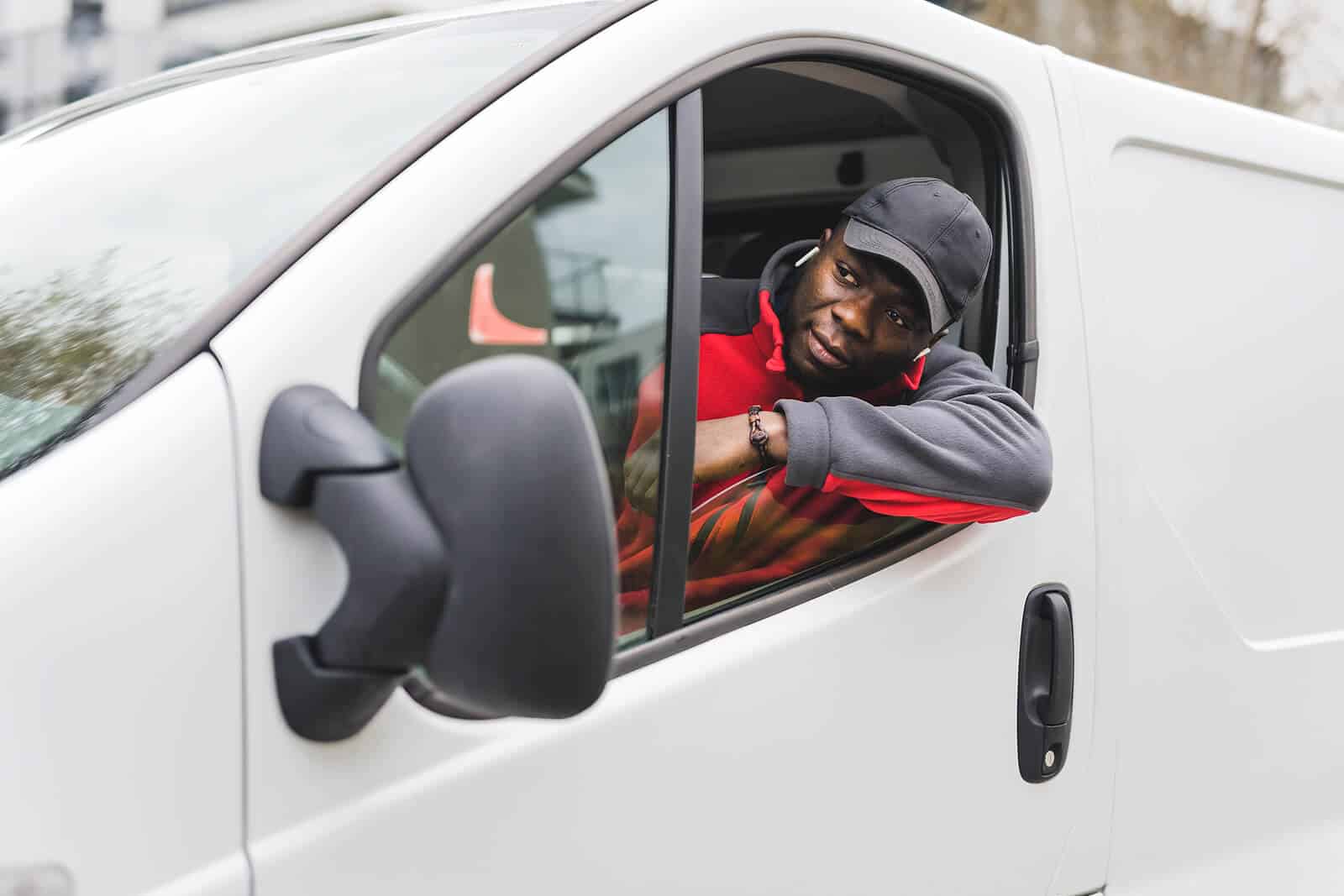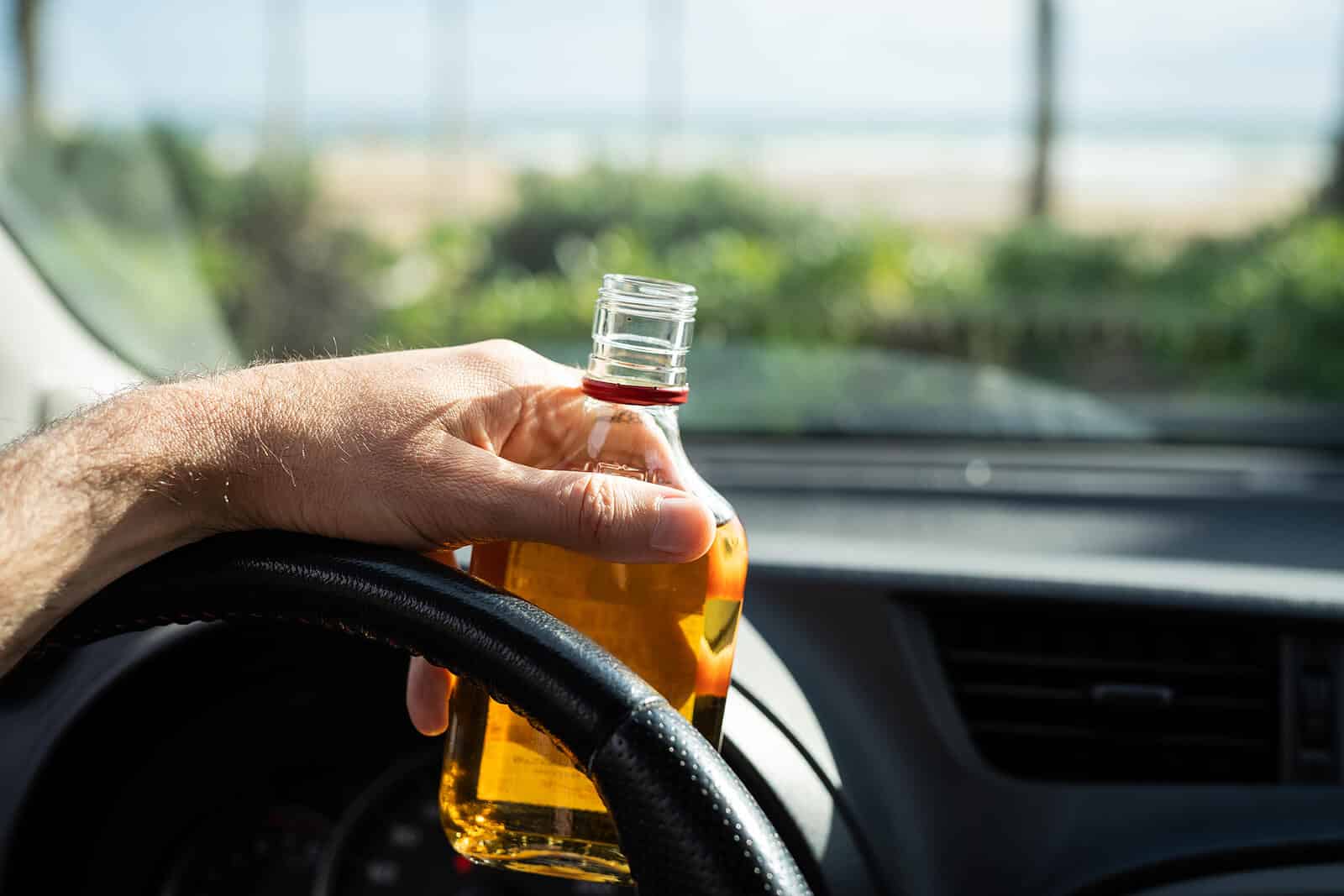Is an Employer Liable for an Employee’s Car Accident?

If you’re injured in a car accident with someone driving a work vehicle, you may wonder is an employer is liable for an employee’s car accident. In Florida, you can seek damages for injuries caused by another driver’s negligence. If the person who caused your injuries was employed and conducting work duties when the accident occurred, you may be able to file a claim against their employer to receive compensation.
Florida car accidents involving a company vehicle can be especially complex. The car accident attorneys at Emerson Straw are experienced litigators who will take all the necessary legal measures to safeguard your rights. Arrange your free initial consultation to learn how we can help you get financial recovery from the responsible party.
When is an Employer Liable for an Employee’s Car Accident?
Under the principle of vicarious liability, also called respondeat superior, an employer can be held responsible for an employee’s actions, including car accidents during work-related tasks.
If an employee is driving for work and injures another driver, the employer is liable for an employee’s car accident, including damages to the victim. Florida requires employers to compensate victims and their families for any injury or death caused by their employees.
The following elements can help you and your attorney determine if the employer is liable for your injuries:
Acting Within the Scope of Employment
If an employee is acting within the scope of employment when an accident happens, their employer is responsible for the damages. Operating within the scope of employment means they are driving the vehicle in a work capacity rather than commuting to or from work or carrying out personal errands.
For example, if an employee is making a delivery, transporting construction materials, or commuting from their office to a work meeting, the employer is liable for any accidents during this time.
Failed to Conduct Due Diligence
An employer has a duty to conduct due diligence when hiring and supervising employees who will be driving company vehicles. If an employer fails to properly screen or supervise an employee who then causes a car accident, the employer can be held liable for any damages or injuries resulting from the accident.
For example, an employer hires a driver without verifying their driving record or ensuring they have a valid driver’s license. The employer could be liable for the resulting damages if that driver causes an accident while driving a company vehicle.
Employers are also responsible for properly training their employees to operate any vehicles they drive for work purposes.
The Driver Was an Employee
For vicarious liability to apply to a car accident case, the at-fault driver must be employed by the company. Under Florida’s worker classification laws, an employee is an individual who receives payment from an employer for performing any work or services while involved in any form of employment under an agreement or contract.
This can include an apprenticeship contract or an express, implied, written, or oral agreement. The definition of employee also includes individuals employed legally or illegally, minors, and foreign nationals.
When is an Employer Not Responsible for an Employee’s Actions
In some cases, knowing if an employer is liable for an employee’s car accident is more challenging. Your attorney at Emerson Straw can investigate the circumstances of your crash to determine the liability of the employer and driver based on the following factors:
Acting Outside Their Scope of Duty
If an employee acted outside the scope of their duty when they caused the accident, they may be held personally liable for damages resulting from the crash. An employer cannot be held vicariously liable for the employee’s actions if they are unrelated to their work duties.
For example, if the employee who caused your injuries was driving a company vehicle to run a personal errand, you can hold them personally liable for your damages. Similarly, if the employee used their work vehicle unauthorized and off company time, you can file a claim against their personal liability insurance for compensation.

Substance Use
If an employee causes an accident while under the influence of drugs or alcohol, they may be held personally liable for your injuries. Employers are responsible for ensuring that their employees do not operate vehicles under the influence of drugs or alcohol and take appropriate action if they suspect an employee is impaired while on the job.
However, the employer may not be liable if the employee injured another person while under the influence of drugs or alcohol and was not acting within the scope of their employment. For example, if an employee decides to drink at a bar during their lunch break and gets into a collision when heading back to work in the company car, the employee will be responsible for the damages.
The At-Fault Driver was an Independent Contractor
If the person who caused your accident is not employed but is an independent contractor, the company is not liable for their actions. Florida classifies independent contractors using multiple qualifiers under 440.02(d). Your attorney can use a multi-factor test as outlined in Cantor v. Cochran to determine if the at-fault driver is an independent contractor or an employee:
- The extent of control the employer has over the work
- Whether the employee engages in a specific occupation or business
- The nature of the occupation and whether it is performed under supervision by an employer
- Type of skills required for the position
- If the employer provides the instruments, tools, and workplace
- Length of employment
- Whether the work is part of the employer’s regular business activities
- If the parties intend to create an employer-employee relationship
Commuting To or From Work
Generally, employers are not responsible for an employee’s actions when commuting to or from work. This is because commuting is not considered as acting within the scope of employment.
However, your attorney may be able to seek compensation from an employer if the employee was using an approved work vehicle and conducting business on behalf of the company. For example, they drop off bank documents or deposits as requested by their employer, make work-related phone calls, or attend a required virtual meeting.
What Damages Can You Receive After a Crash With a Work Vehicle?
In Florida, if you’re involved in a car accident, you can receive compensation for damages through your personal injury protection (PIP) insurance. PIP covers 80% of your medical expenses, follow-up medical care, and 60% of your lost wages. If your medical bills and lost wages exceed the limit of your PIP coverage, you can file a claim against the at-fault driver and their employer to recover additional damages.
How Much Can an Employer Owe in Damages?
Under the dangerous instrumentality doctrine, an employer is liable for any injuries caused by driving a company vehicle. In Southern Cotton Oil v. Anderson, the Florida Supreme Court ruled that because cars are dangerous, employers are responsible for ensuring employees drive company vehicles safely on public highways during their work duties.
Under Florida law, the company is liable for any damages and injuries caused by their employee while operating the vehicle but only up to a certain amount:
- $100,000 per person
- $300,000 per incident for bodily injury
- $50,000 for property damage
If the employee is uninsured or has insurance with coverage limits of less than $500,000 for bodily injury and property damage, the employer can be liable for an additional $500,000. This includes compensation for economic damages, such as medical bills, lost wages, and other financial losses.
When Can You Pursue Non-Economic Damages?
You can seek non-economic damages for pain and suffering and mental anguish resulting from your injuries. These damages can compensate you for the mental and emotional pain you experience after a crash. They can also provide recompense if your injuries impact your ability to maintain and enjoy your everyday lifestyle, hobbies, and relationships.
To pursue non-economic damages, you must have sustained a severe and long-lasting injury that affects your daily life. Florida allows you to recover these damages if your injury involves a significant and permanent loss of physical function, injury, or scarring and disfigurement.
Your attorney from Emerson Straw can estimate your economic and non-economic damages to help you receive the maximum settlement possible after a collision with a negligent employee.
Work with a Car Accident Lawyer After an Accident Involving a Company Car
Understanding if an employer is responsible for a car accident requires knowing the complex rules around the active work status of the employee. An attorney from Emerson Straw Injury Law can investigate the circumstances surrounding the accident, including interviewing eyewitnesses and checking the title of the work vehicle.
After reviewing all documentation, we will negotiate with the company or at-fault driver’s insurer for a fair settlement. If the insurance company refuses to pay what you’re owed, we will take your case to trial to fight for restitution.
Contact us today to schedule a free case evaluation. We can help you hold the negligent party accountable for their actions and determine when an employer is liable for an employee’s car accident.
